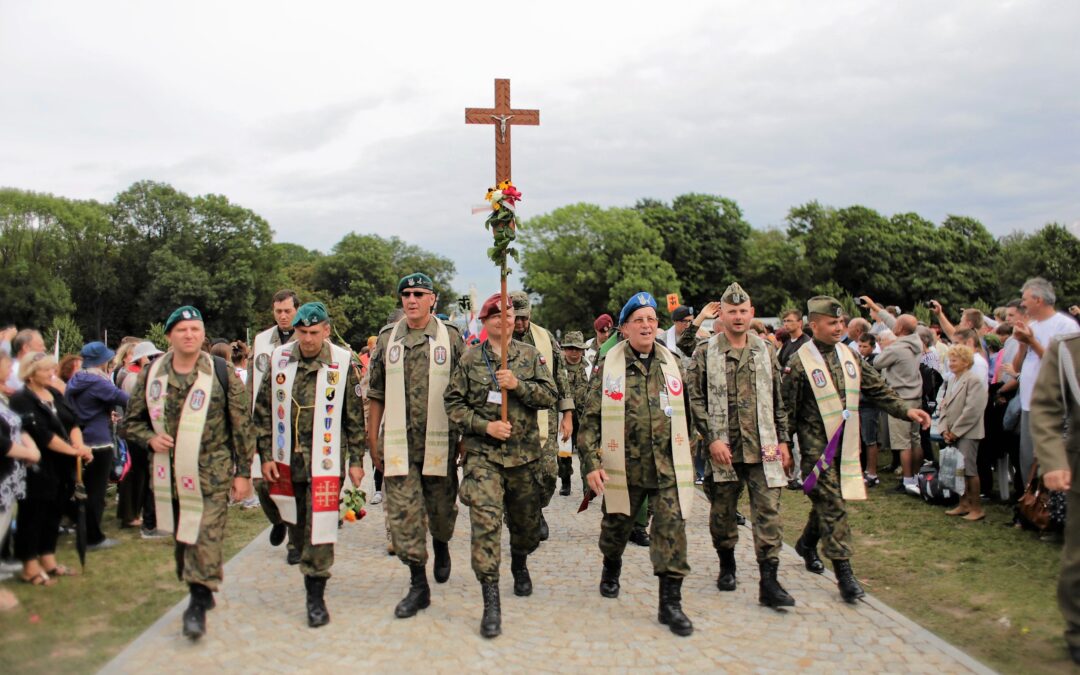The Polish defence ministry has withdrawn from plans to purchase 300 “mobile field altars” for the army – at an estimated cost of hundreds of thousands of zloty – following criticism of the idea.
This weekend, it emerged that a tender was issued by a military logistics unit for the items, with 40 to be purchased this year and 260 in 2022. As well as the altar, which would fold into a suitcase, each set was to include a chalice, cross, candlesticks, bottles for wine and water and a liturgical vestment in camouflage colours, among other items.
a tak to może wyglądać https://t.co/ujmKM1NwMY pic.twitter.com/oXzGe6RsAu
— mswierczynski (@mswierczynski1) October 16, 2021
An overall cost for the purchase was not disclosed, but those interested in taking part in the tender had to pay a 28,000 zloty (€6,130) deposit. The documents “indicate this is a priority purchase, as the tender uses an accelerated procedure”, notes newspaper Fakt, which estimates the total cost at hundreds of thousands of zloty.
The news immediately drew criticism from opposition politicians. Krzysztof Śmiszek of The Left (Lewica) noted that the government did not want to meet the pay demands of medical staff and teachers, yet did have funds for religious items for soldiers.
Following the outcry, the defence ministry announced this afternoon that, “by the decision of minister Mariusz Błaszczak, the purchase of mobile field altars will be suspended”. The money will instead be spent on body-mounted cameras for soldiers serving on the border with Belarus, where there has been a surge in attempted illegal crossings.
Decyzją min. @mblaszczak postępowanie na zakup mobilnych ołtarzy polowych zostanie wstrzymane. Pieniądze, które miały być przeznaczone na ten cel, zostaną wydane na kamery nasobne dla żołnierzy pełniących służbę na granicy polsko-białoruskiej.
— Ministerstwo Obrony Narodowej 🇵🇱 (@MON_GOV_PL) October 17, 2021
Poland is one of Europe’s most religious countries, with around 90% of the population officially classified as Catholic and relatively high (though declining) levels of religious belief and attendance.
The current ruling coalition, led by the national-conservative Law and Justice (PiS) party, has placed great emphasis on respecting the country’s Christian traditions. PiS chairman Jarosław Kaczyński has called the Catholic church the “repository of the only moral system commonly known in Poland”.
Critics, however, accuse the government of going too far in blurring the line between church and state, and of privileging Catholicism over other faiths. Opposition leader Donald Tusk, himself a practising Catholic, recently called for the church to be “protected from the party that has appropriated it and made it a political tool”.
Main image credit: Grzegorz Skowronek / Agencja Gazeta

Daniel Tilles is editor-in-chief of Notes from Poland. He has written on Polish affairs for a wide range of publications, including Foreign Policy, POLITICO Europe, EUobserver and Dziennik Gazeta Prawna.




















